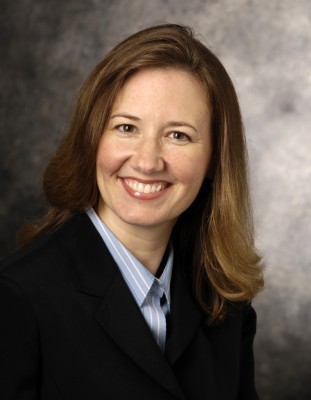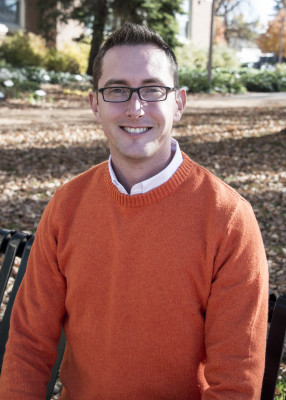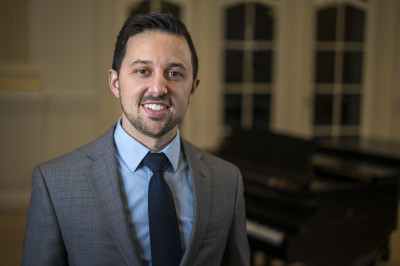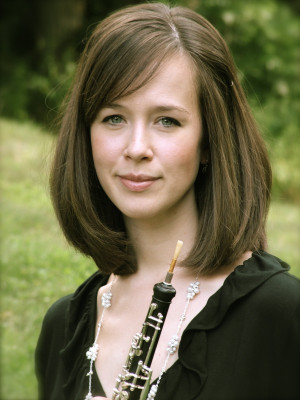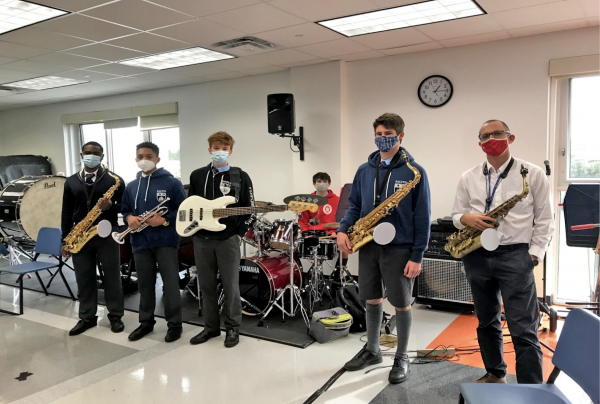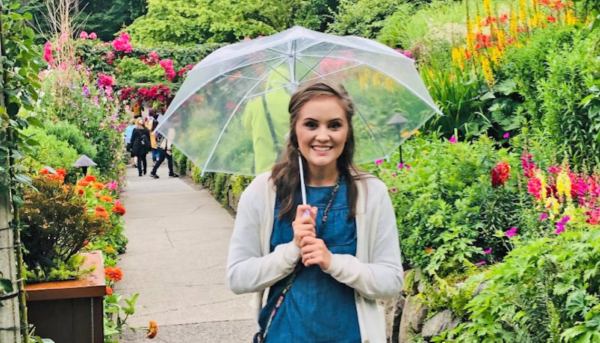Overview
The music education program at Colorado State University is designed for prospective elementary and secondary school music teachers and is a gateway to employment and growth in musical excellence. Upon successful completion of the undergraduate degree, students become licensed to teach elementary, choral, band, and orchestra music to K-12 students.
With a focus on B.M. and M.M. programs, one of the many strengths of CSU’s music education area is the personal attention given to each student, paired with ongoing opportunities for all students to have early teaching experiences working directly with school-age students. Additionally, an emphasis on performance and outstanding musicianship is highlighted.
At the secondary level, students receive extensive training in how to design and implement programs centered around comprehensive musicianship and reflective practice, while at the elementary level, the training incorporates both Kodály and Dalcroze methodologies. The teacher licensure program is nationally accredited by NCATE and includes on-site work in schools and student teaching in elementary and secondary schools. Additionally, students work with youth on campus for arts-integrated experiences such as BRAINY (Bringing Arts Integration to Youth) and the Middle School Outreach Ensembles, featuring an innovative teacher training component.
Students are extremely active within the music education area and lead their organization (Collegiate National Association for Music Educators), which focuses on professional development, social mentoring, and community outreach. The CNAfME chapter has received a Chapter of Excellence Award from the Collegiate National Association for Music Educators.
The music education faculty work closely with the Teacher Licensure Office in the School of Education to place students in quality music classrooms throughout their degree in practicum placements and during their student teaching placement. In addition, students receive preparation to teach Early Childhood through Senior High in all areas: elementary, choral, and instrumental. The program consistently sees more than a 95% job placement rate upon graduation.
The music education program is comprehensively structured to allow for continued study at the master’s level, with enrollment tripling in the last three years. A program highlight includes side-by-side work with ensemble directors, allowing full-time master’s students to assist in teaching coursework and directing ensembles.
The music education faculty is comprised of nationally and internationally recognized educators, researchers, clinicians, adjudicators, and award-winning performers with a vested interest in the educational process of our students. There is a concerted effort on the part of all faculty to know our students on a professional and personal level, guiding their growth throughout the program.
On-campus training takes place in the world-class University Center for the Arts, an exquisite teaching, performance, and exhibition venue for music, theatre, dance, and art. The UCA is located at the foothills of the Rocky Mountains and is an inspiring setting for personal growth.
Degrees
Undergraduate Degree
Graduate Degrees
Along with the knowledge of teaching they bring to the table, music education faculty at CSU also have the personal experiences that bring different strategies and methods to life; offering a perspective at a practical level. ~ Aleaha Harkins
As the undergraduate program facilitator for the Middle School Outreach Ensemble, I have had the opportunity to learn about the joys and challenges of teaching music within a supportive environment of peers and music education faculty. The program gave me the opportunity to refine my leadership skills and work with others toward a collective goal. I now feel confident in my ability to make a positive impact when I enter the field as a full-time educator. ~ Charlie Mathews (CSU Music Education alum)
Study With
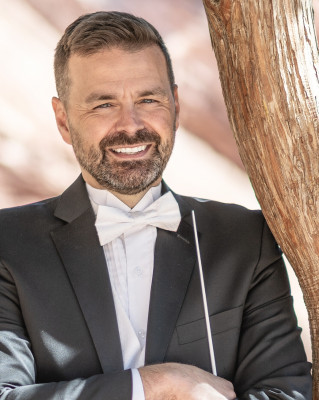
Nathan Payant
- Instructor of Music
- Administrative Coordinator of Music Education
- Director of Concert Choir
(970) 491-2346
Integrated Research
At Colorado State University, faculty research and professional activity is relevantly integrated throughout coursework in both the undergraduate and graduate degree sequences. Examples from music education faculty:
Bonnie Jacobi’s passion for on-location historical research includes a recent discovery of the first formal Dalcroze instruction that took place within an American music curriculum (1913, Bryn Mawr College), resulting in two published articles in the Journal of Historical Research in Music Education. Additionally, topics such as musical gesture, space, literacy, and socioemotional learning in music augment her research on the role of music in higher education for nineteenth-century females.
Erik Johnson is passionate about research directly impacting public school teachers and students, including investigating the effect of peer-teaching and collaborative learning on music achievement, engagement, motivation, and student self-concept. Results provide exciting implications for how to diversify traditional instruction in an effort to construct successful music-learning environments. At home with both quantitative and qualitative methodologies, he continues to investigate and share the exciting ways that peer-teaching can enhance student learning.
Music Education Events
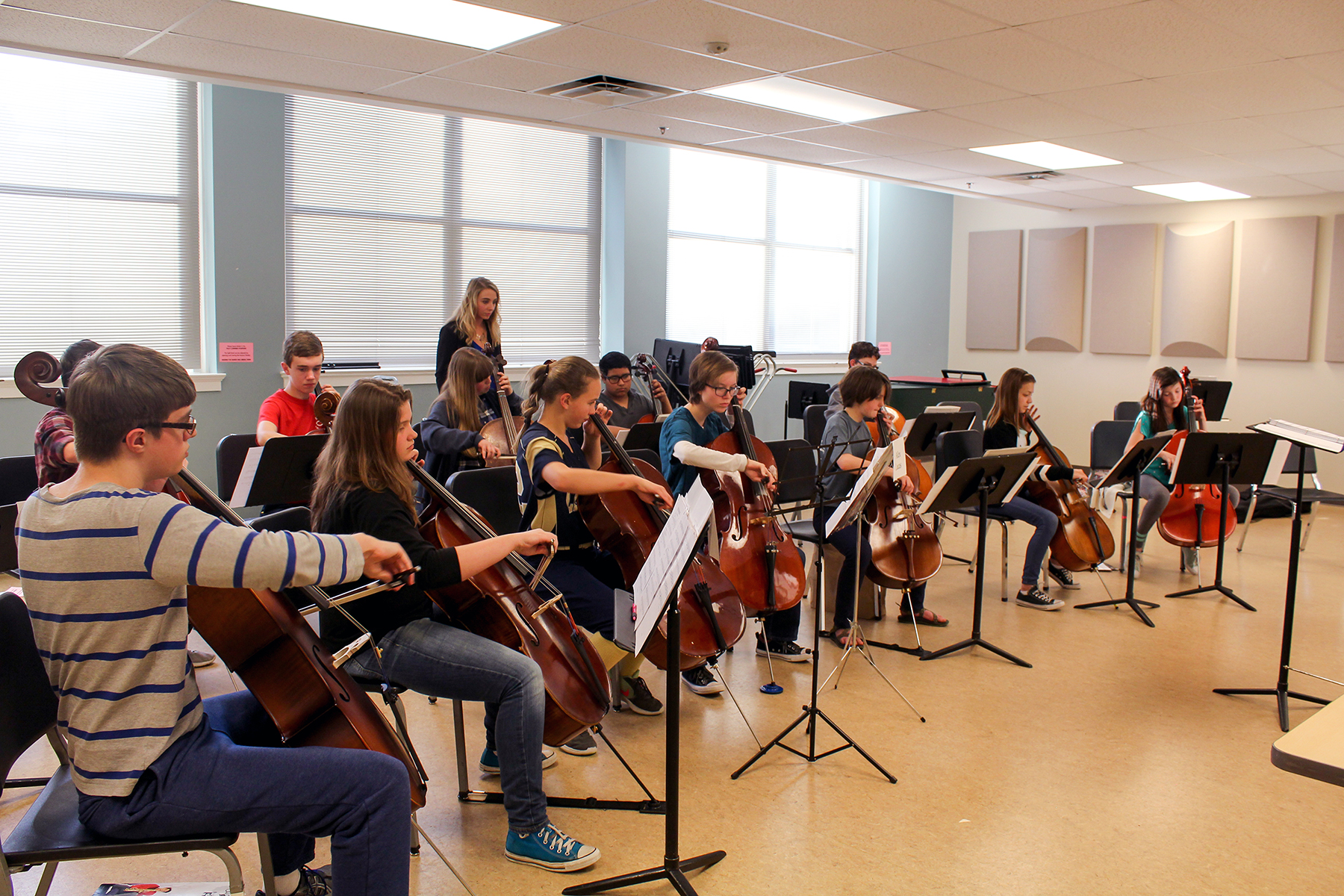
2025 Middle School Outreach Ensembles (MSOE)
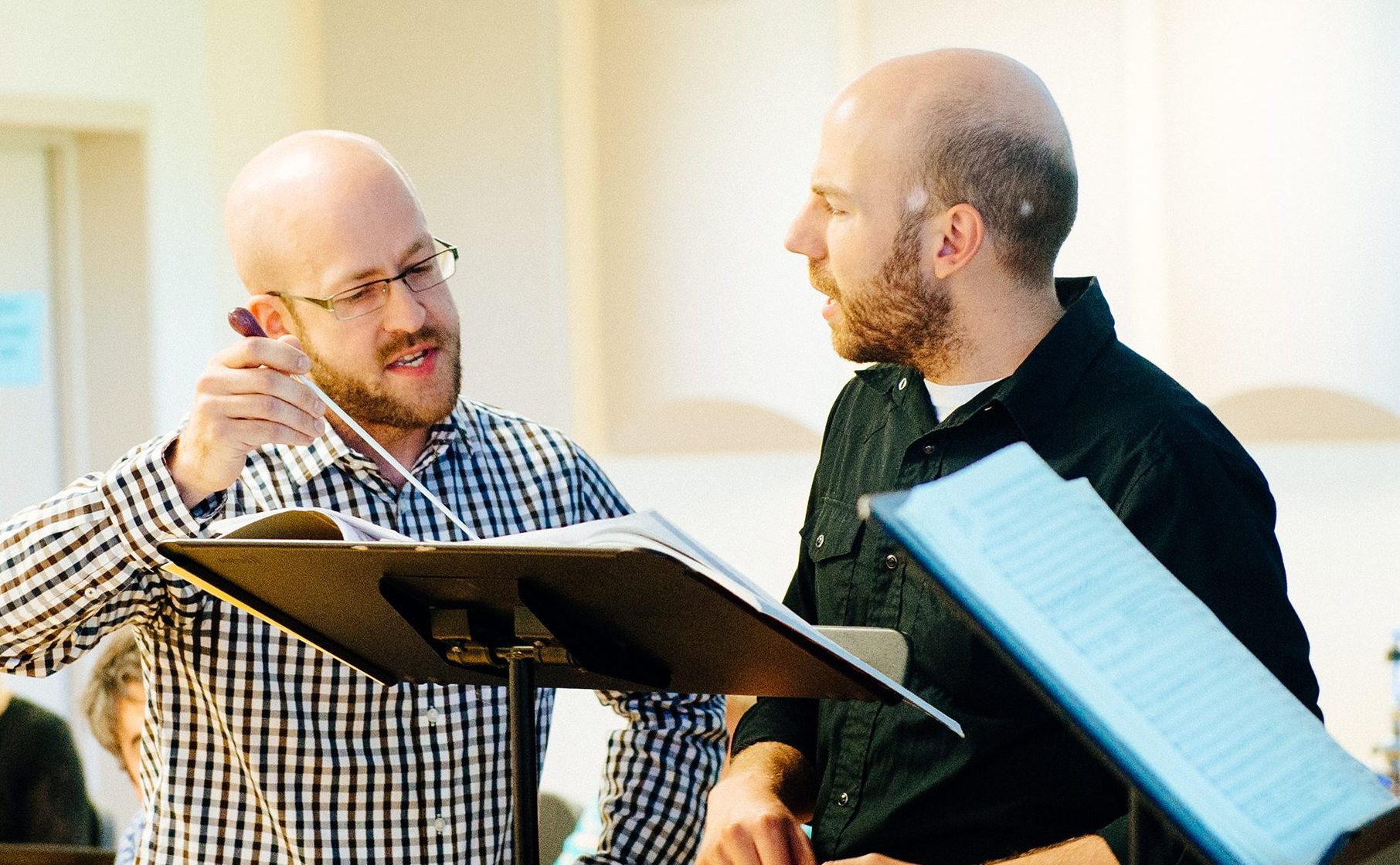
2025 Summer Conducting: Seminar for Music Educators
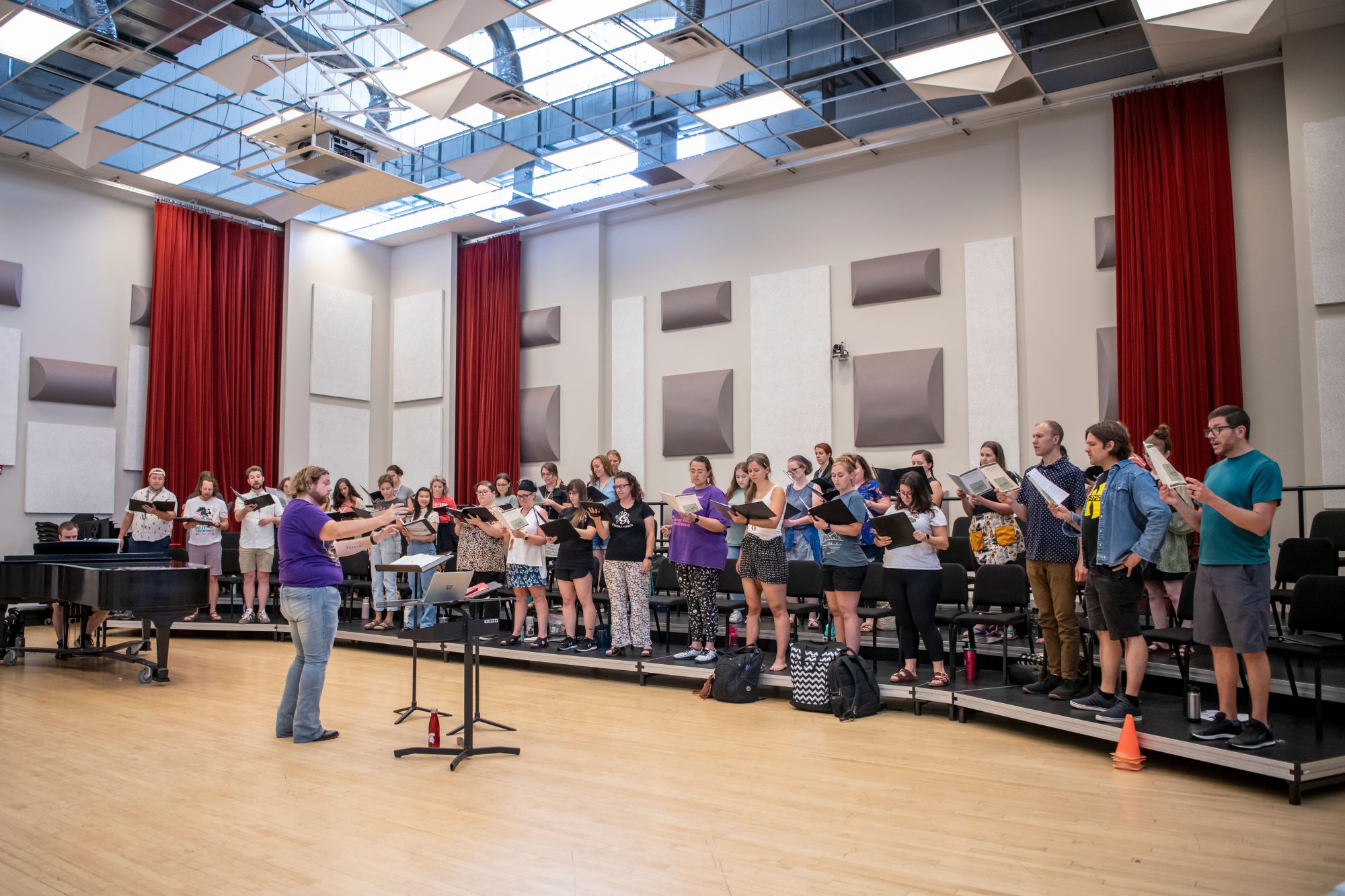
2025 2025 Colorado Kodály Institute: Summer Residency
Music Education News
Fall 2022 Music Education Faculty Notes
Dr. Jacobi will present an invited session at the 2022 National Conference of the American Eurhythmics Society in Helotes, Texas on October 8, 2022. The title of the session is: “Developing the Child’s Sense of Touch: Tactile Activities Then and Now.” Also, this fall, Dr. Jacobi will join the CSU Concert Orchestra on Dec. 4 […]
Alum Eli Cagen: Teaching in Kuwait, Korea, and Bermuda
In this interview we follow Eli Cagen, B.A. ’10, M.M.E. ’17, on his journey teaching in various places throughout the world.
Music Alumna Avrial Turner: Outstanding young teacher
What does it take to be an outstanding young teacher? Avrial Turner, B.M.E. ’19 outlines her priorities for being an effective teacher.


